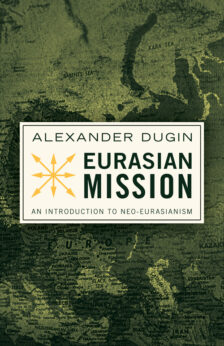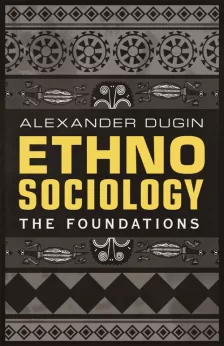“Without metaphysical freedom, the universe is just a divine puppet show. If there is to be any real creaturely goodness, any new and creative act of love, rather than the merely mechanical uncoiling of a wind-up universe, if there are to be any real decisions other than those made in the divine will, then there must be metaphysical freedom, and such freedom brings with it the possibility of evil as well as the promise of goodness.”
― Augustine of Hippo, On Free Choice of the Will
The collective struggle to understand our current moment has produced frustrating results. It is a testament to the complexity of the world today that people are falling more and more for conspiracy theories. This phenomenon is well-documented and understandable. In the face of incoherence and vast suffering we want a clear enemy. This became particularly salient after Islamic extremism fell away as the bête noire of the American empire. Without a “real” and cognizable external foe, how could we explain all the horrible things happening in our lives and in our country? For right-wingers and conservatives, this had led to Q, the deep state, the Illuminati, Epstein, child sex trafficking, billionaire donors, etc.
The left has its fair share of conspiracies too, and there’s plenty of overlap these days. A few left-wingers adhere to essentially the same conspiracies on the right today, but merely realign the aims of these purported cabals. It’s less satanic panic and more capitalism run amok. It’s COINTELPRO and toppling leftist regimes. It’s a wide-ranging plot to suppress elements hostile to capitalism or bourgeois values.
What’s convenient about this view is that there is a kind of balance to things. For once, there is something like agreement. A mysterious cancer is eating away at our civilization, and it’s located on the margins. A liminal, ethereal, elitist plot that threatens everything, but what of the center? What theory (conspiracy or otherwise) holds for the majority of centrists and liberals, for establishment figures and neocons? Obviously, some conspiracy theories have more purchase or are at least more tolerated among the broad public than others. Today, you can question the JFK assassination without anyone really batting an eye. Aliens have been in the news a lot too. But among this sect, conspiracy theories are more a choose-your-own-adventure novel than a cohesive theory explaining the world. They’re not pure beliefs; they’re eccentric flavoring.
What holds the center is a growing idea that masquerades as a worldview but lies, in essence, much closer to a conspiracy. I call this the liberal clockwork universe.
The clockwork universe is in many ways very similar to other deterministic theories of the world. If it conjures notions of Enlightenment Europe and the Deists, that is by design. How it differs from classical models of determinism is its emphasis on culture and society, though. Where the Deists saw the universe as operating within a closed system of classical mechanics and under an indifferent God, this new clockwork universe cares not for physics or metaphysics at all. Rather, it is social theory.
At the heart of it is a belief that identities determine outcomes retroactively. Human action is framed entirely by social identity and then explained as a consequence of who we are intersectional-ly. To give a concrete example, under this theory George Floyd was destined to die not because he was George Floyd but because he was a poor black man. And Derek Chauvin was destined to kill him not because he was who he was (a violent person with a history of misconduct) but because he was a white man and a cop. Correctly applied, the clockwork universe can explain away most of our social ills.
More important than explanation, however, is expiation. As a deterministic theory, it absolves the public at large and all of us individually from any guilt over poor social outcomes. Identity is absolute, and under given conditions certain identities will act in certain ways, and therefore intervention is meaningless. To stop George Floyd from being killed would require us to stop him from being black. This is its appeal. It reinforces the values we have placed on identity and tolerance as a society while running interference against anyone proposing real change. Even if you can improve circumstances or material conditions, you can’t change someone’s identity, or so the logic runs.
And despite the clockwork universe’s obvious contradictions it persists and is growing. This is due to its flexibility, which is not normally associated with determinism. But one must take into account its protean association with identity. Take sex work, for example. Under this framework, sex workers of all stripes have both perfect agency and a perfect lack of agency. They both selected with full knowledge their line of work and were simultaneously coerced into it by a cold patriarchal society. This blaring paradox is elided at the moment of any real consequence for the sex worker, good or bad. Once a provider experiences some outcome (say, sexual assault), adherents to the clockwork universe have their answer as to why. She was a set of identities under a set of circumstances. Whether you absolve her or blame her is more a factor of taste and ideology. What matters is that it was unavoidable for her.
The clockwork universe rolls back the notion of free will, not to pure mechanical determinism but a kind of intermediary notion best exemplified by Augustine and many medieval thinkers. For Augustine and some medieval philosophers, the idea of free will was not as we conceive it today, i.e. the ability to choose A or choose B. The medieval notion is more restricted. In attempting to square Christian metaphysics with the idea of free will, human choice was reduced, not to A or B singularly, but whichever we should prefer. God gives us the space to choose what we want, but we cannot choose otherwise.
The liberalism of the clockwork universe runs with this idea but tweaks it slightly. Instead of the desire of the soul, it exalts the context of individual identity. The “choice” is a kind of intersectional preference, not what you want per se but what a type of person would do under your circumstances. And that’s history. While in the medieval context this explained how human autonomy could exist alongside an eternal, omniscient god, in our current setting it functions to rationalize the behavior of individuals socially and societally. Not as Christian souls, but rather as capitalist subjects.
As a mode of analysis it is perfectly complete and paralyzing. It substitutes who for why and what, and in so doing renders moot any need for further explanation. Once we understand that it was a middle class Asian woman who perpetrated some act, then we know all we need to know. The meaning of all social action is tied inextricably to identity. Thereby it shuts off other modes of analysis and maintains the status quo.
In this way the liberal clockwork universe functions just as any conspiracy theory. It provides explanation and closure through some mystical and unattainable cipher. It is amorphous and adaptable. Impossible to refute, it is the conspiracy of the self. But it does differ in a few key ways from the rank-and-file conspiracy theories that pervade our society. To begin, it does not posit an elitist cabal as the source of our ills, but rather offers a diffuse and collective answer. It’s not the deep state, it’s everyone living in the States. More insidiously, it poses as scientific and ethical. It has the appearance of wokeness and fits neatly with popular conceptions of gender and race. By subscribing to the postulations of the clockwork universe, you respect the totality of difference between social groups and identities. You acknowledge an experience and perception gap, and you understand that people’s actions are motivated by their identity and social context.
In his Foundation series, the science-fiction writer Isaac Asimov proposed a new type of science called psychohistory. This hypothetical discipline could predict the future by using history, sociology, and statistics to determine the behavior of large groups of people over a period of time. The liberal clockwork universe represents its chilling real-world counterpart. But whereas psychohistory looks forward, the clockwork universe looks sideward and backward. The scientists of the Foundation series sought to usher humanity through a series of crises to a brighter future. The clockwork universe only seeks to preserve the current liberal order.









